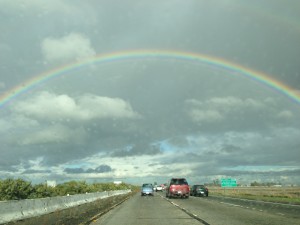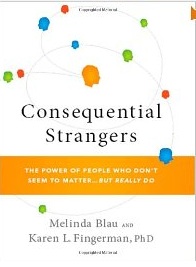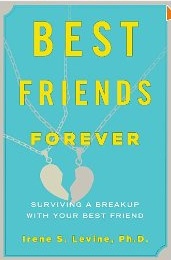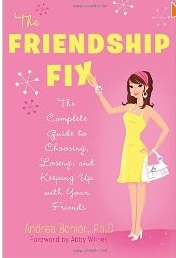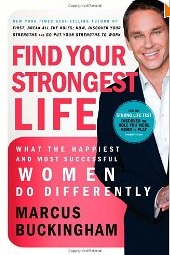So my last blog post obviously hit a nerve. It is now the #1 post of the last 3 months, beating out popular posts--such as Reflections on my Katie Couric Interview and What Do I Do with My Toxic Friend?-- two posts that have been up for months. We are apparently very interested in this subject of how to respond to the negative people in our lives!
Two Different Frameworks for Evaluating the 'Negative' People in Our Lives
So, as promised, I am going to share with you two frameworks of how to deal with the friendships that feel negative in our lives. This is a long blog, but I really wanted to cover at least two different paradigms and examples... hope it's helpful!
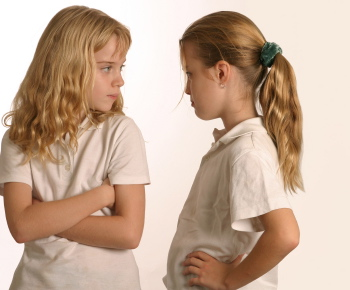
Just so we're clear-- I'm not writing about criminals, drug abusers, mental issues, or those who are willfully hurting us; but rather the vast majority of women that we've called friends at one time or another but now tend to use words such as toxic, negative, or selfish to describe them. While we can all point out that there will always be a very clear "black and white" to the two extremes of who we can each have in our lives at different times, my desire here is to challenge us to look at what Kathy, in her comments on the previous post called, the "gray area." The gray area being people who may not be un-safe to us, but certainly may be annoying, depressed, insecure, self-obsessed, distracted, or negligent.
1. FRAMEWORK 1: Know the Different Types of Relationships So You Create Appropriate Expectations
I don't have room here to cover the entire 5 Circles of Connectedness which highlight the 5 different types of friendships, but basically our most casual of friendships are on the far Left-Side (Contact Friends) and the most intimate and consistent of our friendships are on the far Right-Side (Commitment Friends). I cover this in the most depth in my book but a quick overview can be found on this blog.

What's helpful about understanding the various types of friends is that when we do an honest assessment of whether our friend is truly a Committed Friend (someone we've built up meaningful history with over a long period of time, they are active in many areas of our lives, we are as transparent as possible with them) or perhaps is a Common Friend (maybe someone we've only known for a couple of months, someone we are only close to in one area of our life, etc.) it helps us answer the question: Do I have unrealistic expectations on this friendship?
I've observed many women not having a strong Right-Side of close friendships who then place those needs onto friendships on the Left-Side. In other words, just because she's one of your closest friends doesn't mean you've developed the friendship that warrants the expectations and demands. A good question to ask: "Am I blaming her for x because I want her to be a Committed Friend but in reality we are still Common Friends?"
Furthermore, it helps me see my commitment to the relationship. If she's in a dark and needy space and she's my Committed Friend then I am truly committed to going through that phase with her even if she doesn't act healthy, positive, and supportive for a long season. I can do this because we have a history together that reminds me that this isn't who she is permanently and I know that this is the call to relationships-- to be there for each other, even when it comes with some drama and emotion. But if she's a Contact or Common Friend acting this way then a) it may seem more like a red flag because we don't have enough history for me to accurately assess how she's acting now from how I know she's capable of acting, and b) we, quite frankly, don't have the same obligation/commitment to each other to be there for each other in the same ways.
Being clear what type of friendship the two of you have developed helps you better see how invested you are in this relationship and what expectations are fair. What you are willing to give, or put up with, in a Committed Friend might be different from what you are willing to do for a Common Friend.
For me, if whining and complaining is the grievance, for a Committed Friend it would be completely appropriate (though maybe not enjoyable or energizing-- so I need to make sure I'm getting enough of that in other close relationships during this season) for them to call me any time of night or day and sound like a crazy person sobbing and saying irrational things. But while that would not be acceptable behavior for any friend of mine on the Left-Side, I would be willing to give them the space to monopolize the conversation during a scheduled lunch get-together and I'd give them a pass on complaining... for a time.
Does that differentiation make sense? It means we don't have to cut everyone out of our lives when they are needy and depressed and hurting, but neither does it mean that we're expected to put up with everything from everyone.
2. FRAMEWORK 2: Know the Definition of Friendship so You Can Repair and Assess
This evaluation method also helps us decide which relationships to move along the Continuum so that you are choosing to nurture the friendships that are healthiest, minimizing the chances of having high-drama and unhealthy behaviors in your Right-Side friendships.
The definition of friendship, put out by Dr. Paul Dobransky, that I highlight in my book on pages 128 & 129 is that friendship is "consistent, mutual, shared positive experience." He says that when a friendship is failing it is because one of these four required qualities is missing. I have almost an entire chapter devoted to each of those concepts but basically a friendship needs to have repeated time together, be seen by both as a friendship, include increased vulnerability, and ultimately add more joy than stress to your life.
For our purposes here, how this definition helps me is to realize at least two things:
1) These are not simply qualities that she possesses or not, but they are behaviors that we together have either developed or not. Here, we are evaluating the friendship-- the pattern and dynamic between the two of us-- not the person. We're recognizing that something doesn't feel good between us-- but that's not the same as saying that every relationship this person has in their life is identical to our experience. While we may find that they do something annoying, it's also possible that had we been more honest up front or set different expectations, that this dynamic wouldn't have been created. We hold for that possibility by assessing the interaction, not the individual. Which means it's possible we could do something different and shift the experience of the relationship.
2) It also informs me that if there are relationships that don't meet those requirements then it doesn't necessarily mean that I can't have those people in my life, rather it just means I don't want them to be on my Right-Side.
How These Frameworks Inform My Response
Knowing these two frameworks (both in greater detail in my book) helps us:
- Assess the current relationship experience-- what type of friend is this and which of the 4 qualities are most lacking?
- Figure out what needs be repaired so we can show up differently to see if that helps.
- Identify the investment/depth of the relationship so we can decide if it's worth an honest conversation (confrontation though awkward can be the best gift we learn to give to friends on our Right-Side where we should be willing to try "everything" before letting the friendship just dissolve.
- Decide if we can just move these relationships to the Left-Side (see them less often, confide in them less, have fewer expectations) rather than cut them out of our lives.
That's all I have time for today (You'd think I was writing an entirely new book with as much as I have to say! Ha!) but I'll keep writing on this-- next time I'll share 5 questions you should ask before ending a friendship.
Have a great weekend!
Are these helpful? What jumped out at you? How have you seen these concepts play out in your life? How could these have helped your past relationships? I love hearing your feedback so it's more of a conversation. Jump in! :)


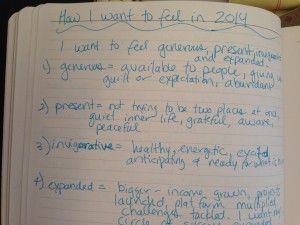
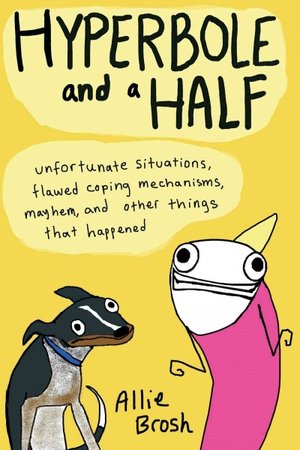

 Rachel Bertsche, author of
Rachel Bertsche, author of 
 Ori Brafman, co-author of
Ori Brafman, co-author of 
 Dr. Andrea Bonior, author of
Dr. Andrea Bonior, author of 
 Carlin Flora, author of
Carlin Flora, author of 
 Dr. Paul Dobransky, author of
Dr. Paul Dobransky, author of 
 Porter Gale, author of
Porter Gale, author of 
 Dr. Geoffrey L. Grief, author of
Dr. Geoffrey L. Grief, author of 
 Sophia Dembling, author of
Sophia Dembling, author of 


 Dr. Jan Yager, author of
Dr. Jan Yager, author of 
 Diane Gage Lofgren & Margaret Bhola of
Diane Gage Lofgren & Margaret Bhola of 
 Christine Arylo, author of
Christine Arylo, author of 

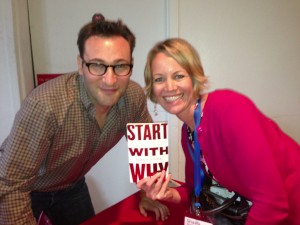
 (2009) and a motivational speaker whose TED talk is in the top 10 most-viewed ever! But what he shared with us in May was some of the content of his next book coming out later this year.
(2009) and a motivational speaker whose TED talk is in the top 10 most-viewed ever! But what he shared with us in May was some of the content of his next book coming out later this year.

